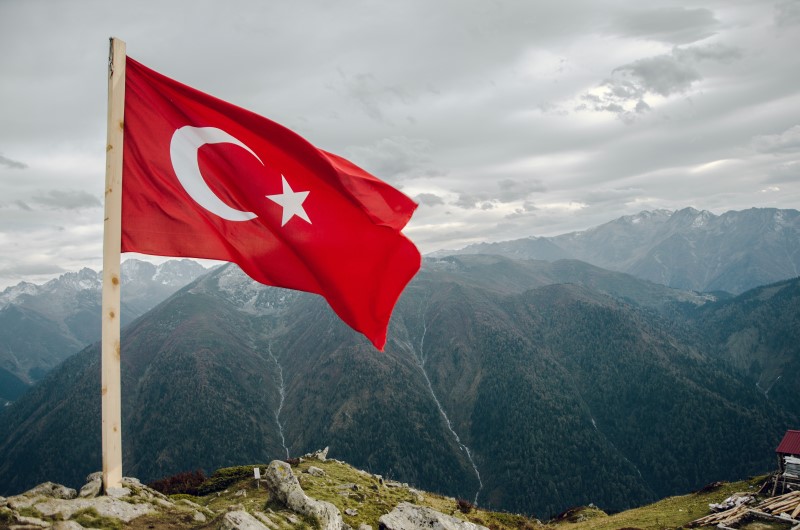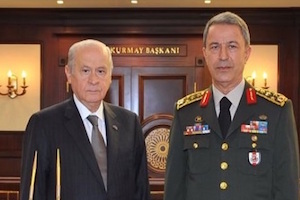In the Grip of the State: Can Turkey’s Democrats Surmount State Nationalism?
By Oya Baydar
February 1, 2021
Turkey is evolving from authoritarianism to fascism under the tutelage of the far-right leader Devlet Bahçeli, to whom President Recep Tayyip Erdoğan defers to stay in power. Turkish and international observers have until recently failed to take the full measure of Bahçeli’s importance, treating him as the “junior partner” of Erdoğan, overlooking that Bahçeli is the political front-figure of the state establishment and that he gives voice to the die-hard nationalist, militarist-expansionist mentality that is deeply entrenched in the Turkish state. Meanwhile, the opposition does not offer a democratic counter-force as it too remains wedded to statist nationalism. Yet, faced with the imminent threat of fascism, the parties of the Turkish opposition must sooner or later recognize that it will be their turn next and that the western parts of Turkey cannot and will not remain democratic when the eastern, Kurdish part of the country is under the rule of dictatorship.

Turkey's Emergency Election: The Primacy of Raison d'etat
By Halil Karaveli
May 2, 2018
It is not President Recep Tayyip Erdogan’s “power hunger” that accounts for Turkey’s snap presidential and general election. Instead, raison d’état is behind this event, which will enshrine presidential rule. The abolition of parliamentary rule and the concentration of all executive powers to the presidency are designed to neutralize the Kurdish challenge. It is also intended to refurbish the authority of the state and lend it a renewed aura of strength after it was torn apart by the Gülenists. Reactions to Turkish developments should not be based on interpretations that neglect the primacy of the state’s interests and the impact of the Gülenist threat and Kurdish challenge.

Can “Constitutional Engineering” Once Again Succeed in Pacifying Turkey?
By Halil Karaveli
February 3, 2017
Historically in Turkey, there is a relationship between the rise of emancipation movements and “constitutional engineering”, between class- or ethnic-based challenges to the established order and the imposition of authoritarian constitutional arrangements in response. The authoritarian constitution of 1982 was the answer to the challenge of workers and peasants in the 1960s and 1970s. Today, a presidential system is supposed to neutralize the Kurdish challenge. However, it may be that Turkey’s ethnic fissure may prevent it from developing either democracy or stable authoritarian rule.
Turkey’s Proposed Constitutional Changes and Erdoğan’s Forever War
By Gareth H. Jenkins
December 14, 2016
The package of proposed amendments to the Turkish constitution that were announced on December 10 foresee the gradual concentration of even more power in the hands of President Recep Tayyip Erdoğan, leading to the introduction of a full presidential system in November 2019. Yet recent events have shown that the more power Erdoğan exercises, the worse the situation in Turkey becomes.
The “Logic” of Turkey’s Repression
By Halil Karaveli
November 10, 2016,
What is the logic behind the arrests of Kurdish politicians and of liberal and leftist journalists in Turkey? From the perspective of the Turkish regime, in the wake of the coup attempt it is imperative to restore the authority of the state, and to undo the political gains of the Kurdish movement. President Recep Tayyip Erdoğan is seconded by the leader of the far right, Devlet Bahçeli. The new “Nationalist front” that their parties have formed speaks to the sensibilities of the vast majority of Turks. However, what is being mobilized is a destructive national unity, attained at the expense of liberty. Ultimately, it may not serve the cause of a united Turkey.





